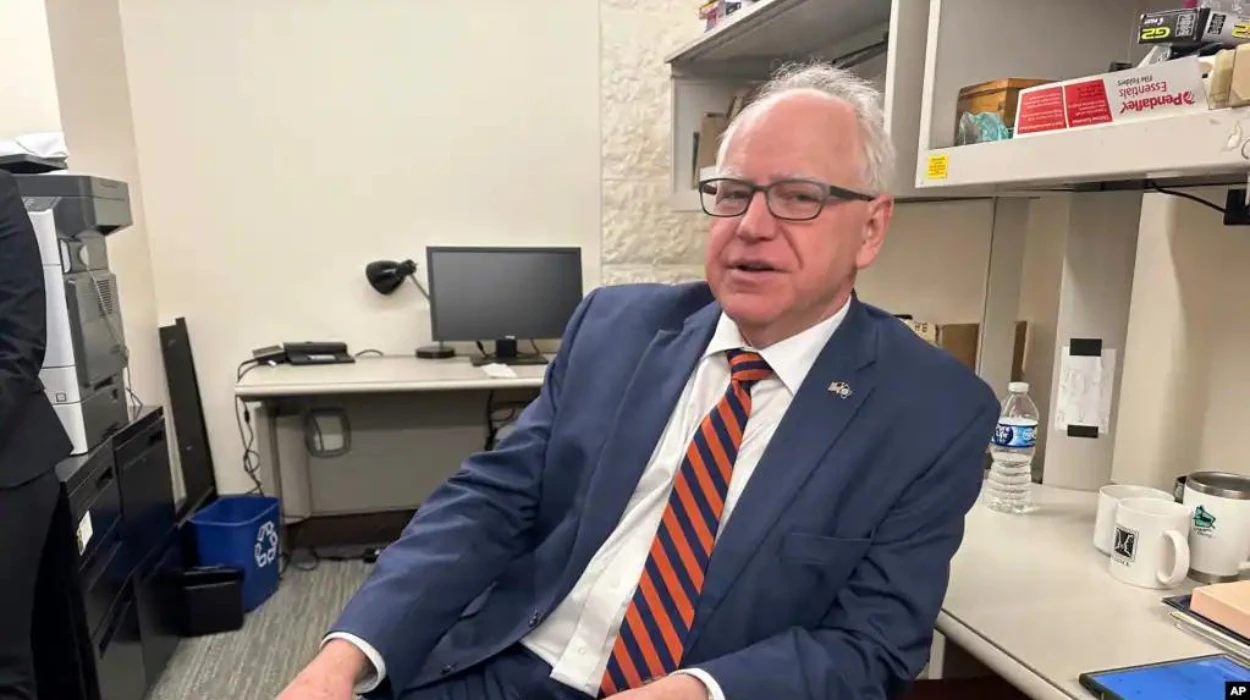USA (Transatlantic Today) – Democratic vice-presidential nominee Tim Walz has a long-standing relationship with China, spanning from his time as an educator during the pro-democracy protests in Tiananmen Square to his congressional work on U.S.-China relations. His extensive experience includes teaching in Guangdong, organizing educational exchange programs, advocating for human rights, and balancing diplomatic and military concerns. This deep connection positions Walz as a well-informed figure on issues related to China, potentially influencing U.S. foreign policy with nuanced insights.
At Guangdong’s Foshan No. 1 High School in 1989, Walz was a history, culture, and English teacher for Americans. The major student protests in Tiananmen Square occurred during this time. Walz’s experiences in China shaped his perceptions of Chinese citizens’ lives under the Communist Party,
China was on the rise, and that was the reason I was there,” Walz recalled in a 2007 interview with The Hill. His students nicknamed him “Fields of China” because of his friendliness. Looking back on his teaching career, Walz described it as “one of the best things” he had ever done.
Promoting Educational Exchange
After his return to the United States, Walz, and his wife founded “Educational Travel Adventures” and organised summer trips to China for American high school students. In 1994, five years after the Tiananmen protests, Walz and his wife returned to China for their honeymoon, bringing two American high school tour groups with them. They continued these exchange programs until 2003.
Advocacy for Human Rights
According to Voanews, after winning a seat in Congress in 2007, Walz continued to focus on China while holding a position on the human rights-focused Congressional-Executive Commission on China. He started speaking out against the Chinese government and frequently gathered with activists like the Dalai Lama and Joshua Wong of Hong Kong.
Walz recounted witnessing the Tiananmen Square protests, stating in a 2014 VOA interview, “I remembered waking up and seeing the news on June Fourth that the unthinkable had happened.” Despite security concerns, Walz felt it was crucial to go to China to support the people and share their stories with the outside world.
Walz co-sponsored resolutions in Congress on important human rights concerns, such as the release of activist Huang Qi and Chinese Nobel laureate Liu Xiaobo. The Hong Kong Human Rights and Democracy Act was also co-signed by him in 2017.
In 2016, he stressed the need for “constructive dialogues” with Beijing to preserve Tibetan culture and ecology, urging less regulated religious freedom for Tibetans.
Walz expressed concerns about China’s military activities in the South China Sea, opposing reductions in U.S. military spending due to Beijing’s construction of artificial islands. Despite his strong stance on human rights and military issues, Walz advocated for maintaining cooperation with China. “I don’t fall into the category that China necessarily needs to be an adversarial relationship,” he stated in an Agri-Pulse Communications interview.
Analysts suggest Walz’s extensive connections with China could benefit the Democratic presidential ticket by providing informed insights on U.S.-China relations. Lev Nachman, a political scientist at National Taiwan University, noted that Walz’s deep understanding of the region could bring nuance to U.S. policy debates on China. “He may be able to articulate the need to push back against China’s authoritarianism and human rights violations in a way that doesn’t vilify Chinese citizens,” Nachman told VOA.
Walz’s balanced approach could help shape a more nuanced and effective U.S. foreign policy towards China, emphasizing human rights while fostering areas of cooperation.


























